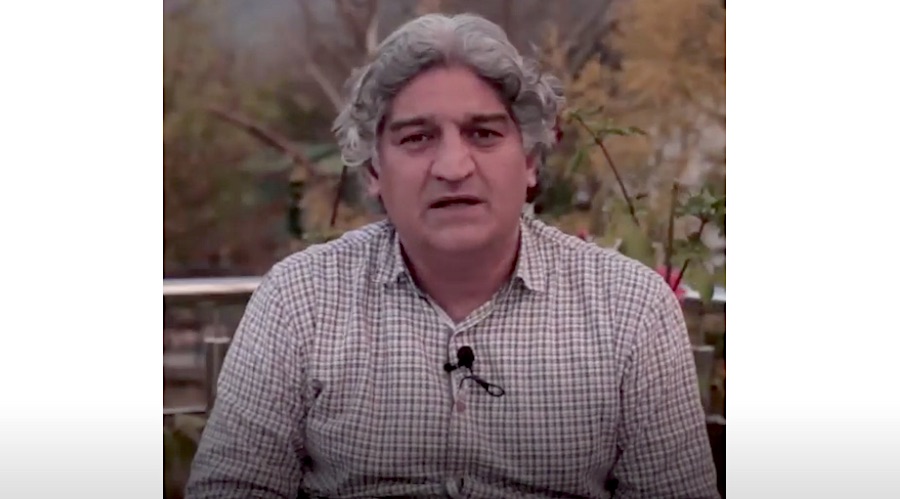An Anti-Terrorism Court (ATC) in Islamabad granted a two-day physical remand of senior journalist Matiullah Jan on Thursday, in connection with a case filed against him at the Margalla Police Station. Jan’s arrest, confirmed by Islamabad Police earlier in the day, prompted his appearance before ATC Judge Tahir Abbas Sipra. Prosecutor Raja Naveed had requested a 30-day remand, but the court rejected the plea and instead allowed the police two days to hold Jan in custody.
Following his arrest, Jan was taken to the Margalla Police Station. Human rights lawyer Imaan Zainab Mazari-Haazir, who is also Jan’s lawyer, stated that when she visited the police station, he was being held in the lock-up. Earlier, Jan’s family posted on social media claiming he was “abducted” from the parking lot of PIMS Hospital at around 11 PM by unidentified men in an unmarked vehicle. The family demanded his immediate release and for authorities to inform them of his whereabouts.
Mazari-Haazir also posted on social media that Jan was missing after his detention, adding that when she and her team pressed the police for access, they were eventually allowed in. “We checked the lock-up ourselves, and the people inside confirmed that Jan was taken away just before our arrival. He is missing,” Mazari-Haazir wrote on X (formerly Twitter).
During the court proceedings, Defence lawyer Hadi Ali called the charges against Jan “absurd” and argued for his release. Ali also submitted an affidavit from journalist Saqib Bashir, who was also detained but later released. In response to a question from Judge Sipra about whether a journalist’s profession should protect them from criminal liability, the prosecutor argued that the case required full investigation, especially regarding drugs allegedly found in Jan’s possession. The prosecutor suggested that the police had found narcotics, including “ice” (a form of methamphetamine), in Jan’s vehicle, although these claims were met with skepticism in the courtroom.
Saqib Bashir, testifying in Jan’s defense, expressed disbelief at the charges, particularly the allegation that Jan was under the influence of drugs. Bashir criticized the use of anti-terrorism laws against journalists, asserting that these laws are meant for actual terrorists, not media professionals. Judge Sipra commented on the evolving nature of journalism, stating, “The introduction of screens alongside pen has complicated matters,” but ultimately allowed Jan to meet with his family before announcing the remand decision.
The charges against Jan include those under various sections of Pakistan’s criminal code, including terrorism-related charges, as well as accusations of rash driving, assaulting a police officer, and theft of police weapons. The FIR alleges that Jan injured a constable when he drove his car toward police officers at a checkpoint and made threats. The complaint also claims that Jan was under the influence of narcotics, though this remains contested.
The arrest has sparked widespread condemnation from journalistic and human rights organizations. The Association of Electronic Media Editors and News Directors (AEMEND) condemned the charges against Jan, calling them “absurd” and arguing that they reflect a new strategy to intimidate journalists. AEMEND highlighted that similar baseless charges have been brought against journalists in the past, including under cybercrime laws, which courts have often dismissed as unfounded. The organization stressed the deteriorating state of press freedom in Pakistan and urged the government to cease unlawful detentions of journalists and pressure on the media.
The Committee to Protect Journalists (CPJ), a global non-governmental organization, also condemned Jan’s arrest, citing Pakistan’s ranking as one of the worst offenders on CPJ’s Global Impunity Index, which tracks the lack of accountability in cases of violence against journalists. According to CPJ, Pakistan has seen the murders of at least 39 journalists since 1992, with the vast majority of these cases unresolved.
Jan’s arrest is the latest in a series of incidents involving the unlawful detention and harassment of journalists in Pakistan, further raising concerns about freedom of expression and the safety of the media.


